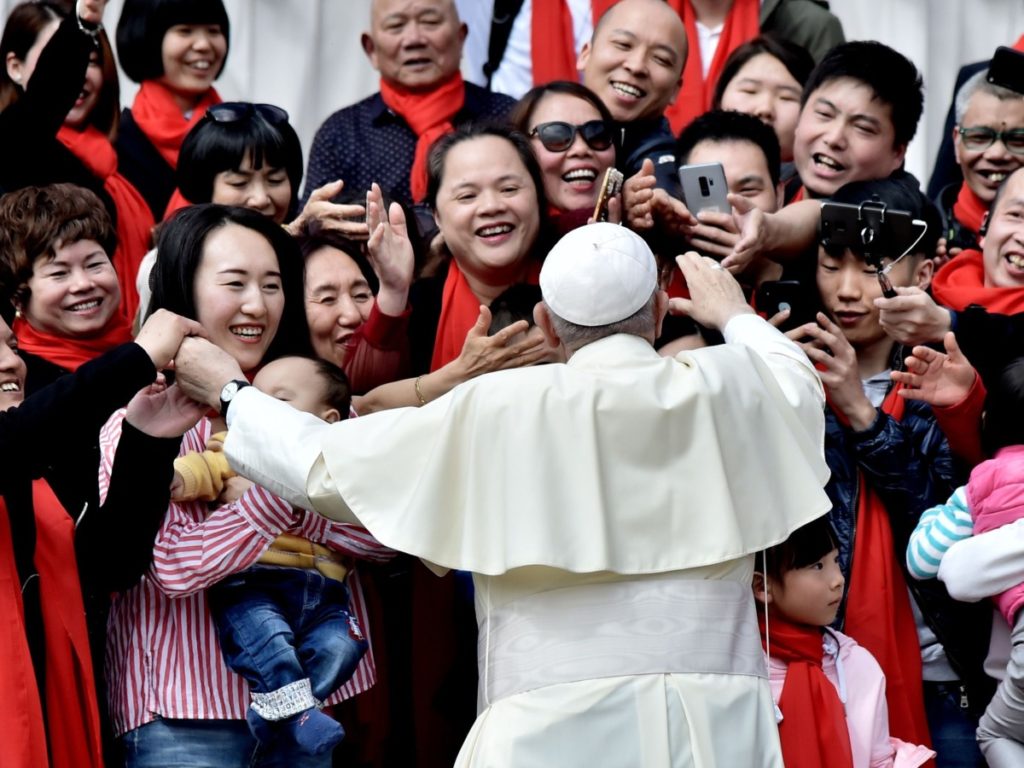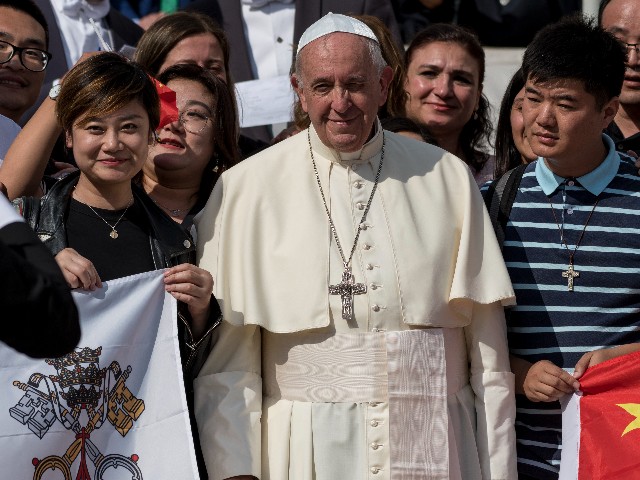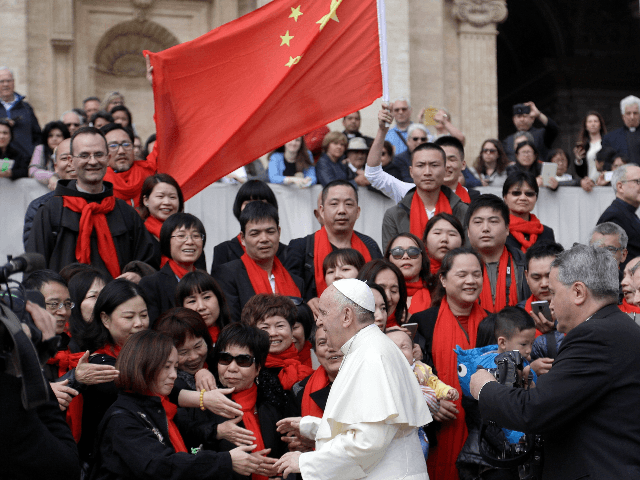ROME — Pope Francis outlined global conflicts and injustices Monday, studiously avoiding any negative commentary on China.
In a lengthy address to the diplomatic corps accredited to the Holy See, the pontiff lamented the consequences of Russia’s war on Ukraine, decried ongoing conflict in Syria, denounced violence between Palestinians and Israelis, bemoaned hostilities in the Democratic Republic of Congo and South Sudan, criticized aggressions in South Caucasus, mourned suffering in Yemen and Ethiopia, censured terrorist violence in Burkina Faso, Mali, and Nigeria, sympathized with ongoing struggles in Myanmar, and prayed for concord on the Korean Peninsula.
Nevertheless, in his nearly exhaustive litany of the world’s conflicts and injustices, the pope had nothing to say about the Chinese Communist Party’s uninterrupted violence and abuse of the Uyghur Muslims in the Xinjiang territory or of the fierce Beijing-driven clampdown on civil liberties in Hong Kong.
In fact, the only mention the pope made of China was a defense of the much-criticized, secret Sino-Vatican agreement on the appointment of bishops in China.
In the context of a respectful and constructive dialogue, Francis told the diplomats, “the Holy See and the People’s Republic of China have agreed to extend for another two-year period the validity of the Provisional Agreement regarding the appointment of Bishops, stipulated in Peking in 2018.”

File/Pope Francis greets faithful from China as he arrives for his weekly general audience on April 18, 2018, on St. Peter’s square in the Vatican. (TIZIANA FABI/AFP via Getty Images)
“It is my hope that this collaborative relationship can increase, for the benefit of the life of the Catholic Church and that of the Chinese people,” he added, a wish that flies in the face of all the evidence revealing a steadily worsening situation for Chinese Christians since the original signing of the accord in 2018.
Despite widespread consternation among defenders of religious liberty and human rights, the pope has doggedly insisted on praising China as a place where the faith flourishes and religious liberty reigns unmolested.
As recently as last September, Francis rejected the label “undemocratic” to describe China’s communist regime, insisting that the issue is too complex to allow for such characterizations.
“I cannot get on board with calling China undemocratic; I won’t do that because it’s such a complex country,” the pontiff told journalists. “Sure, there are things that seem undemocratic to us, that is true.”
“Labeling is difficult and I’m not ready to do that, since they are impressions, so instead I try to support the path of dialogue,” he declared.
“There are different cultures within China, it is a giant, and understanding China is an enormous thing,” the pope said. “But you need to be patient; it takes a lot, but we have to go with dialogue, I try to refrain from labeling it.”
A second geopolitical hotspot conspicuous by its absence in Francis’ address was the South American nation of Nicaragua, where the communist dictatorship of Daniel Ortega has been aggressively persecuting the Catholic Church.
Last month, the U.S. bishops denounced Ortega’s systematic aggression against the Catholic Church, while calling for the release of Bishop Rolando Álvarez, whom Ortega had arrested last August.
The bishops reacted to the Nicaraguan Government’s decision to finally charge Bishop Álvarez with “spurious crimes,” a ploy “denounced by human rights campaigners worldwide.”

File/Pope Francis poses for a photo with a group of pilgrims from China during his weekly general audience in St. Peter’s Square at the Vatican, Wednesday, Oct. 2, 2019. (Massimo Valicchia/NurPhoto via Getty)
“It is with dismay that we witness the continued deterioration of religious freedom and human rights in Nicaragua,” declared Rockford Bishop David J. Malloy, chairman of the U.S. Bishops’ Committee on International Justice and Peace.
Álvarez “had been kidnapped by the regime and isolated under house arrest without due process since August for denouncing the regime’s human rights abuses and the breakdown of the democratic order in Nicaragua,” Malloy said in a statement.
“Bishop Álvarez is being held under the strictest isolation, and his deteriorated physical appearance is a testament to the particularly difficult conditions of his house arrest,” Malloy observed.
Since the bloody crackdown on peaceful protestors in 2018, “the regime and its allies have been implementing a policy of severe, systematic physical, rhetorical, and institutional aggression and intimidation against the Catholic Church in Nicaragua,” the bishop stated.
This has included “unjust detentions, violence, prohibition of priests from returning to Nicaragua, desecrations of sacred images, and even profanations of the Blessed Sacrament,” he added.
Despite the gravity of the situation in Nicaragua, Pope Francis mysteriously has given the Ortega regime a pass, refraining from criticizing even its most egregious human rights abuses.

COMMENTS
Please let us know if you're having issues with commenting.